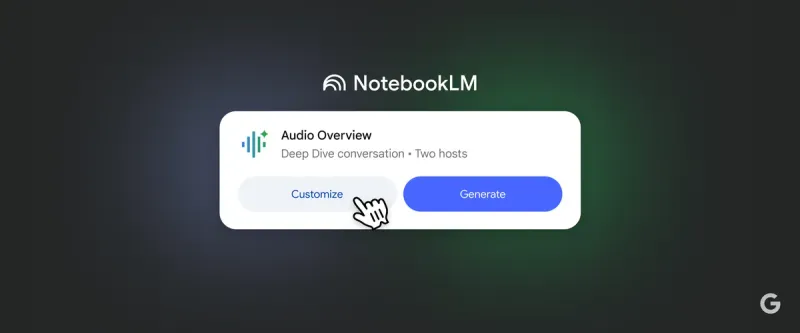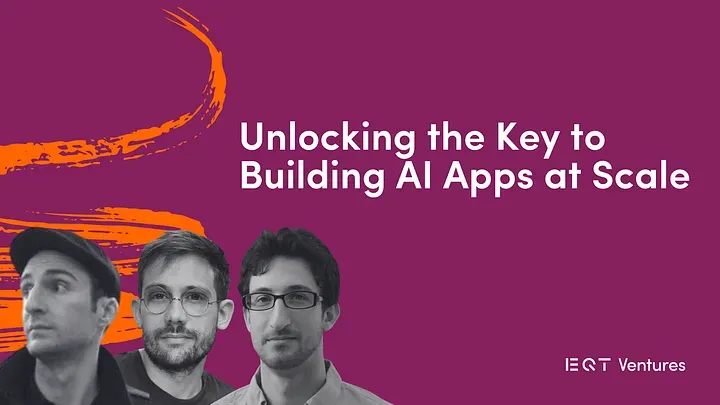This week in AI: January 28 - February 3
South Korea-based startup, Rebellions AI closed its successful Series B with $124M; Figure AI is in talks with Microsoft and OpenAI; Eagle-7B is the strongest multi-language open-source LLM to date; The EU AI Act has practically become a law; and other relevant headlines for this week
Every weekend, we bring together a selection of the week's most relevant headlines on AI. Each weekly selection covers startups, market trends, regulation, debates, technology, and other trending topics in the industry.
Korean AI chip-making startup, Rebellions, closes successful Series B round
The startup raised $124 million in Series B, bringing its total raised funding to over $200 million and earning Rebellions the title of South Korea’s best-funded semiconductor startup. The funding round was led by KT, with the participation of KT’s subsidiary kt cloud, Shinhan Venture Investment, and additional fresh and follow-up global investors. Rebellions will capitalize on the funds to attract new talents and to accelerate the development of Rebel, the startup’s next-gen AI chip specifically designed with Samsung Electronics to run LLMs.
Figure AI, a startup building a humanoid robot, is in funding talks with Microsoft and OpenAI
Figure AI has already raised $70 million in a funding round led by Parkway Venture Capital. The startup is working on Figure 01, a humanoid robot that can do jobs unsuitable for humans and help alleviate labor shortages. According to an unidentified person familiar with the matter, Figure AI is in talks to raise as much as $500 million. According to this source, a possible scenario had Microsoft investing $95 million while OpenAI would contribute $5 million. Allegedly, Figure is also looking for additional investors to complete the deal. If the deal goes through, it would place Figure’s pre-investment valuation at a minimum of $1.9 billion, with the final valuation depending on the amount raised.
The linear transformer-based Eagle-7B is the strongest multi-language open-source LLM to date
According to independent sources, the 7.25 billion parameter model built on the RWKV-v5 architecture is also the greenest 7B model per token. The training for Eagle-7B required over 1 trillion tokens spanning over 100 languages. As a result, the model outperforms all 7 billion parameter models in the most common multilingual benchmarks. Eagle-7B has an English performance approaching many popular open-source models’ performance, including Falcon, Llama 2, and Mistral. Perhaps Eagle-7B’s most notable feature is that it achieves all this despite being based on an attention-free transformer. The model is available for download from Hugging Face, and the full report on its performance can accessed here.
Protect AI acquires Laiyer AI and incorporates Laiyer’s open-source LLM Guard to its commercial offerings
Protect AI’s commercial version of the LLM Guard will offer additional features and integration into the Protect AI platform. The industry-leading open-source project for protecting LLMs against security threats, misuse, and prompt injection is still freely available. The sudden growth in the popularity of LLMs, fueled by the increasing popularity of enterprise applications, such as virtual assistants and chatbots, supports the development of a platform like Laiyer AI’s LLM Guard. In contrast with closed-source security solutions, LLM Guard’s transparency offers an unparalleled level of confidence in the deployment of generative AI solutions that are protected from end to end. As a result, LLM Guard’s integration into the Protect AI platform will reinforce the company’s status as an industry leader in securing and making generative AI applications compliant and operationally effective.
Wondercraft, an AI audio creation startup, raised $3 million in seed funding
The funding will enable Wondercraft to scale its Audio Studio platform. The seed round was led by Will Ventures and backed by Y Combinator, ElevenLabs, Steven Bartlett, and other angel investors. The Audio Studio platform lets users create studio-quality audio projects in any language with the help of templates, AI script assistants, video generation, and realistic AI-generated voices, among other tools. The Wondercraft platform also includes a dubbing tool that can translate existing projects to over 15 languages using human-assisted AI.
Meta released a new version of the Code Llama model family
Meta released CodeLlama-70B, CodeLlama-70B-Python, and CodeLlama-70B-Instruct. Originally launched in August 2023, the CodeLlama family of models is free for personal and commercial use, with the new models released under the same license as previous iterations. Meta claims that this version of the coding assistant is “more performant” than its predecessors.
Kore.ai announced it raised $150 million in strategic growth funding
The investment was led by FTV Capital and had NVIDIA and previous investors, including Vistara Growth, Sweetwater PE, and NextEquity as participants. The company is an industry leader, with its conversational and generative AI no-code platform technology recognized as a leading approach to safely creating and deploying generative AI solutions, such as domain-specific conversational virtual agents, across industries such as banking, healthcare, and retail. Kore.ai reports that it has earned the trust of two million users worldwide, including 400 Fortune 500 companies. As a result, Kore.ai automates an estimated 450 million daily transactions for about 200 million consumers. The company states that the funding will accelerate its market expansion without compromising its status as an industry leader.
The PyTorch libraries received an update following the PyTorch 2.2 release
The TorchRL, TensorDict, TorchRec/fbgemm_gpu, and TorchVision libraries received important updates.
- TorchRL provides a sizeable dataset hub for offline RL and imitation learning with a unified format, allowing for data source swapping and combinations. The TorchRL2Gym environment API turns TorchRL into a universal lib-to-gym converter.
- TensorDict now boasts an improved mmap backend: MemoryMappedTensor. Non-tensor data can be stored in a tensordict by assigning it using the __setitem__ method.
- TorchRec natively supports variable batched embeddings (VBE) and embedding offloading. The embedding submodules have been replaced with their sharded variants.
- The TorchVision transforms v2 are now stable, and torch.compile( ) support will be progressively added.
The full list of stable libraries and a detailed overview of the updates can be found here.
Dynatrace provides enterprises with an end-to-end operational view of AI-powered applications
The company offers a holistic approach to AI-powered application observability by compiling and presenting metrics, logs, traces, problem analytics, and root-cause information in a unified view. This enables companies to inform their decisions with factors additional to the financial cost of AI implementation, such as the environmental impact of their chosen AI-powered solutions, in addition to their resource consumption and operational costs. This is especially important when one considers that most generative AI applications require an onerous initial investment that only yields returns through efficiency increase and cost reduction. As an industry leader in AI observability, Dynatrace offers a suite of nearly 700 integrations that examine an enterprise AI stack from all angles.
The Synthesia AI Video assistant helps users turn text into video
The newly released AI Video Assistant lets users upload text files (in .pdf, .doc, .docx, or .txt formats) or public links containing up to 4500 words to create a script generated in real time. There are also options to stop and regenerate the script as needed. Once the script is ready, users can choose from a selection of templates and specify features such as the intended audience, tone, and objective. It is also possible to select a specific language or edit properties such as the amount of scenes the video has. Whether it is used for social media content creation or to ease the understanding of complex documents by turning them into bite-sized pieces of multimedia content, the Synesthesia AI Video assistant is an essential tool for anyone looking to turn text into compelling video.
Version Lens has secured pre-seed funding for its project manager co-pilot
Version Lens has detected a gap in the AI-powered solutions landscape: there is a lack of solutions directed at product teams and product managers worldwide. Addressing this gap has motivated Version Lens to develop its groundbreaking co-pilot for product managers. Some of the co-pilot’s most important functions include the automation and streamlining of repetitive tasks and the extraction of novel insights from existing data. The startup is hoping that by developing a co-pilot that takes care of these tasks, then product managers can focus on the more rewarding aspects of their jobs. The undisclosed amount of funding was raised with investments from People Ventures, Curiosity, and Pitchdrive.
HireAra announced it raised £450K to accelerate the modernization of the recruitment industry
The startup’s flagship product is an AI-powered candidate presentation platform that lets recruitment agencies showcase their brand and candidates so they can stand out to hiring clients, allowing agencies to place their candidates into positions faster. The funding round counted with participation from the founders of Mercury, SourceWhale, One Up Sales, and Candidate.ID, some of the UK’s major recruitment tech companies. Recruiters can use the HireAra platform to create visually compelling branded content about candidates that agencies can quickly share with hiring employers. HireAra is planning to direct the funding towards the tripling of its sales team, and developing and bringing two new content products to the market in 2024. This funding round is the first that HireAra has completed after the company spun out of Digiblu in 2022. In addition to the participation from existing customers and veteran investors, 45% of the round was raised via private crowdfunding.
Databricks announces its acquisition of AI startup Einblick
Founded by MIT and Brown researchers, Einblick lets its users solve data problems using a sentence in natural language. The state-of-the-art techniques pioneered by the Einblick team enable the translation of natural language sentences into technical resources (code, charts, models) required for the successful generation of problem-solving insights. Databricks is planning to integrate Einblicks approach directly into its platform to increase access to data intelligence and foster the development of next-generation data and AI applications.
Codeium closes a successful $65m Series B round that places the startup at a $500m valuation.
After reflecting on the best possible use for AI to assist developers so they could focus on truly meaningful work, Codeium started developing its suite of next-generation AI-powered tools for developers. This led to the startup’s ability to scale from zero to over 300,000 users in just over a year. Now, after calculating that Codium makes developers 20% more productive, the startup aims to increase this number to a 20x increase in productivity through its suite of AI-powered solutions. The company has announced that the Series B round is a step toward that direction, with the funding being directed toward growing Codeium’s sales and engineering teams.
Sentify raises $1.1M in pre-seed funding to help its users extract insights from LLM products
Founded by former executives from Confluent, Revolut, and Meta, Sentify developed a platform that features an interactive interface and is capable of transforming idle text data into valuable insights that reveal information on customer behaviors, user intents, action inference, product usage patterns, among other topics. Episode 1 led the funding round, and Adam Shuaib will join Sentify’s board. The funding round was also supported by 500 Emerging Europe and angel investors. Sentify’s platform is still in a private beta phase, although the startup is anticipating a public launch by the end of Q1. The platform already accrued the interest of 40 potential customers, with 10 successful pilots underway.
CARPL.ai closed a successful $6M seed round
The seed round was led by leading enterprise software investor, Stellaris Venture Partners, with the participation of strategic angel investors. CARPL.ai has become a compulsory stop for radiologists navigating the growing market of AI-powered radiology solutions. The CARPL.ai marketplace is based on the proprietary DEV-D framework that empowers CARPL's customers to Discover (D), Explore (E), and Validate (V) AI applications before deploying the ones that are most appropriate for each customer's clinical workflow. CARPL already captured a line-up of top-tier clients in the healthcare industry, including the Singapore Government, Massachusetts General Hospital, Radiology Partners, University Hospitals, I-MED Radiology, Albert Einstein Hospital, and Clinton Health Access Initiative. CARPL stated that the funding will materialize the company's plans of expanding its North American team and continuing to build its tech stack.
Google announced Imagen 2, a DeepMind-powered update to its image-generation technology
The Imagen 2 update is powered by DeepMind's latest advances via a diffusion-based model. In addition to improving image quality, Imagen 2 also has improved its performance in areas where most image-generation models struggle, such as face and hand generation, and the unintended introduction of unwanted visual artifacts. Imagen 2 is also better at matching the resulting images to the detail and nuance present in users' prompts. The announcement also stated that Imagen 2 would be available for Bard and Google Cloud's Vertex AI users. As a bonus, Google also included the release of ImageFX, a generation experiment that lets users modify prompt-generated images using a novel approach to text-based prompting. The Imagen 2 release is compliant with Google's AI Principles, and Image 2-generated content in consumer products will be digitally watermarked using Google DeepMind's SynthID.
Not your average AI startup: Probabl is a company built around scikit-learn, a popular data library
Probabl is a spin-off company from France's National Institute for Research in Digital Science and Technology (Inria) built around the open-source data science library, scikit-learn. The popular module has garnered 45,000 stars on GitHub and is widely used by teams at companies big and small (think Spotify, Hugging Face, Booking.com, and Dataiku) working with tabular data. Probabl was created after some Inria-based contributors for scikit-learn and other open-source libraries decided to take steps to ensure proper funding and active development for the projects. Probabl now boasts a truly representative sample of shareholders, divided into three groups: public investors such as Inria subsidiaries and the French Government; Private shareholders, such as Costanoa Ventures; and individual investors. This is in accord with Probabl's self-endowed industrial and digital sovereignty mission to be realized through the launch of the kind of genuinely open-source projects that are becoming increasingly scarce in the current AI landscape.
The EU AI Act is closer than ever after representatives vote to confirm the law's final draft
The Member State representatives' vote follows the tense discussions that took place last December and kicked off the effort to turn negotiation sheets into a text that could be submitted for approval. The AI Act is best known for being an attempt to outlaw several questionable uses for artificial intelligence, including racial profiling, social scoring, and just about any other potentially harmful or rights-violating application. The law also proposes limitations and regulations for the most powerful foundational models and transparency requirements for applications such as conversational agents and chatbots. The final text was unanimously backed by all 27 representatives, despite previous opposition led by France and motivated by the possibility that French startup Mistral may compete with the US tech giants if left unencumbered by additional regulations. Although the Parliament still has to ratify the proposed draft, everything points to the AI Act being adopted as a law in the following months. The law will come into force 20 days after publication. After this timeframe, a tiered implementation will be activated: banned AI applications will be given a 6-month grace period and foundational models will not be bound by the law until 2025. The EU is already establishing oversight bodies and investing in infrastructure to support compliance with the new regulations.





